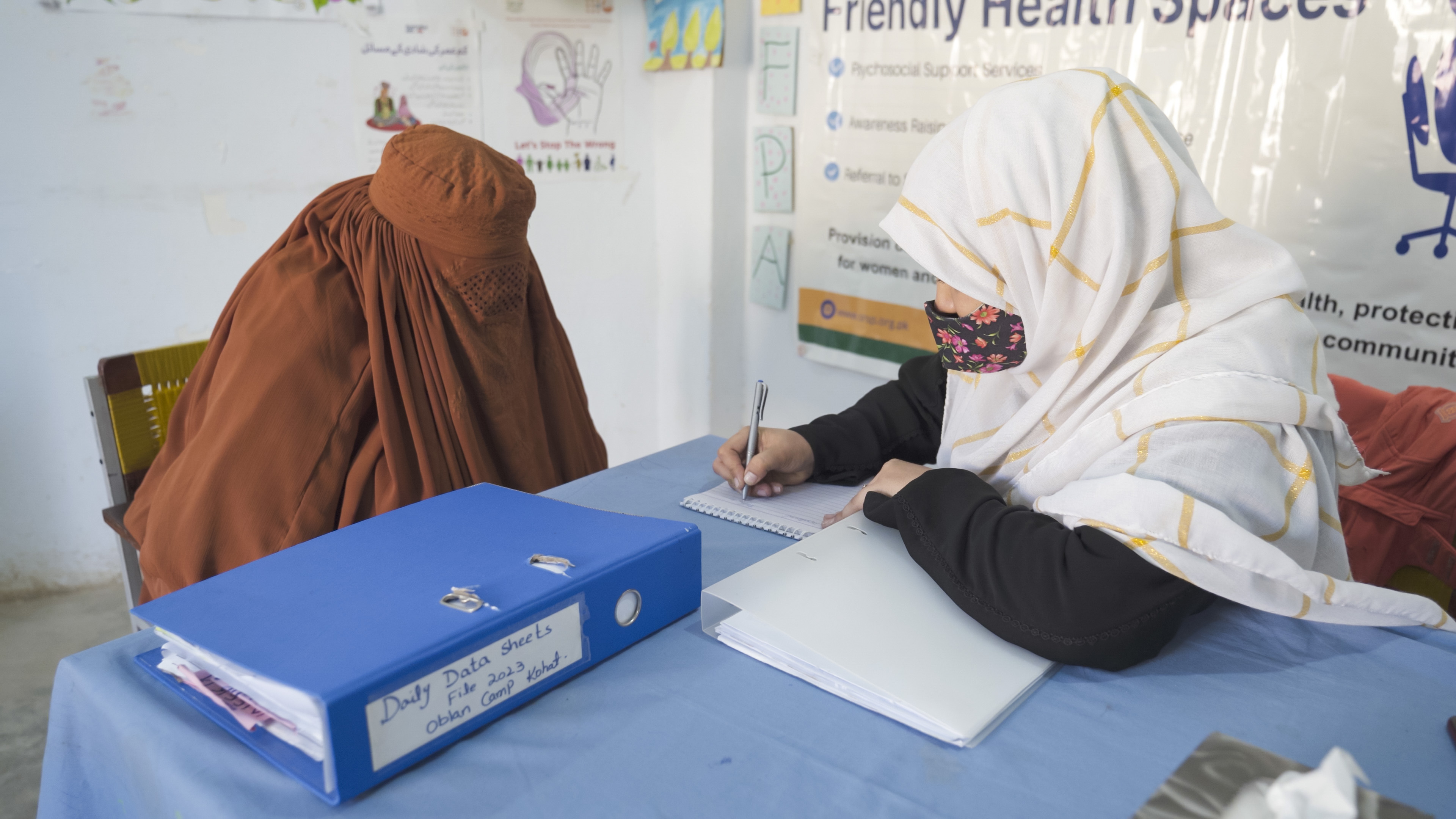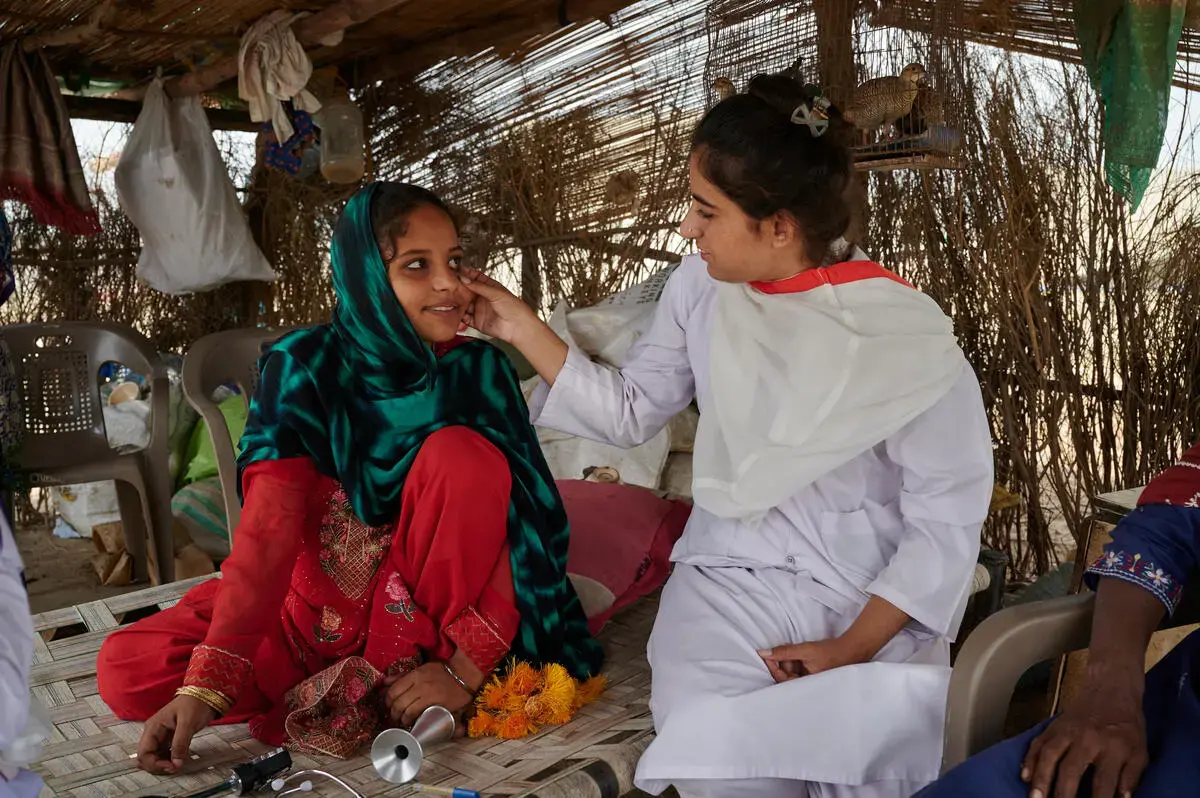Pakistan ranks fifth among the most adversely affected countries on the 2020 Global Long-Term Climate Risk Index published by German Watch. The country has experienced 29 major floods since 1950, with the 2022 monsoon season resulting in widespread devastation affecting 33 million people and causing extensive damage to infrastructure and essential services. Owing to Pakistan’s particular geographical circumstances, it is highly impacted by any changes in climate making it one of the most vulnerable countries with regards to natural calamities such as floods, drought, GLOFs (Glacial Lake Outburst Flooding) and heatwaves.
Over the past few years, a combination of factors including the COVID-19 pandemic, recurring natural disasters, and ongoing political instability and financial insecurity have been reversing development progress and exacerbating existing vulnerabilities. The performance of health systems in providing reproductive health services is below par, characterized by low antenatal care coverage, a high prevalence of home-based deliveries, and low rates of contraceptive use.
In humanitarian emergencies, nearly 70% of those affected are women, young girls, and children, with women of reproductive age making up about 25% and girls aged 10-14 years constituting 4-5%. Around 4% of the disaster-affected population is pregnant, and 15% of these women face pregnancy-related complications. Surveys reveal that one in five displaced or refugee women in disasters has faced sexual violence. Research indicates that women and children are up to 14 times more likely than men to die from disasters like hurricanes, wildfires, and floods. Additionally, 60% of preventable maternal deaths and 45% of newborn deaths occur in such fragile conditions.
UNFPA’s response in emergencies
UNFPA prioritizes the sexual and reproductive health needs of women and adolescent girls. This includes programmes that increase their access to sexual and reproductive health services and protects them from gender-based violence.
UNFPA works with government, civil society partners and other humanitarian agencies to coordinate the delivery of clean birthing kits, training of skilled birth attendants, referral support mechanisms for 24/7 emergency obstetric care; and community awareness campaigns on sexual and reproductive health and gender-based violence issues. Notable past humanitarian responses include the 2005 earthquake, 2010 flood disaster, and the 2022 floods where UNFPA reached more than a million affected people with SRH and GBV services and through mobilizing more than US$ 10 million internal and external resources.
Supporting Afghan refugees in Pakistan
The protracted Afghan refugee crisis in Pakistan is complex. The public health facilities in Afghan refugee communities and hosting areas are further strained by the demand for essential SRH and Gender-Based Violence (GBV) services, underscoring the urgent need for support to the health system.
UNFPA has made notable progress in delivering crucial SRH and protection services to Afghan refugees and host communities. In KP and Balochistan provinces, UNFPA has strengthened public health facilities, deployed mobile service units, and offered telemedicine support. Additionally, UNFPA set up Women and Girls Friendly Spaces where women and young girls received counseling GBV) ase management and psychosocial support services.

Preparedness and Resilience Building
UNFPA has trained service providers on the Minimum Initial Service Package (MISP) for sexual and reproductive health (SRH) in emergencies and Gender-Based Violence in Emergencies (GBViE). Coordination structures for GBV and SRH have been strengthened at national, provincial, and district levels. High-level advocacy with the government has led to the inclusion of MISP in contingency plans. A MISP readiness assessment in KP province has set the stage for its institutionalization. UNFPA and its partners have established a GBV coordination mechanism in districts, led by local administration, to support effective referrals. This system is integrated into Pakistan’s national and subnational emergency plans and applied in all acute emergencies.
Addressing Gender Based Violence
UNFPA co-leads the GBV Area of Responsibility under the Global Protection Cluster. This coordination structure oversees the coordination of the humanitarian response to GBV. UNFPA works with national and local health and disaster management authorities and civil society organizations to effectively design, manage and evaluate programmes that address GBV and sexual and reproductive health (SRH) needs.
Women and Girls Friendly spaces have been established where skilled psychologists and female doctors provide medical and psychosocial services as well as referrals to services. UNFPA - supported multi-sectoral coordination mechanisms are currently operational to facilitate referral pathways for GBV cases. Dignity kits are part of the GBV prevention programme that includes information and counseling while distribution ensures privacy, dignity, and basic hygiene for vulnerable women and girls. This is complemented by ongoing capacity building for frontline GBV workers and the dissemination of information through accessible communication channels.


